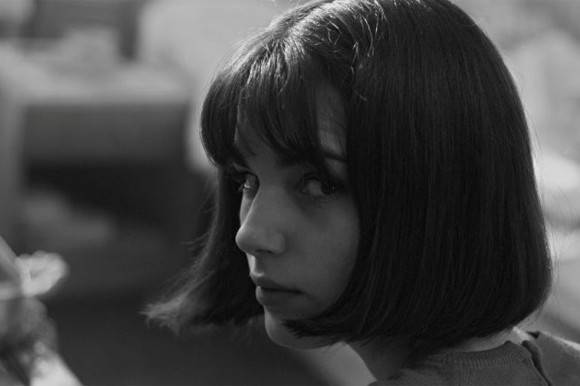Three Czech feature films were selected for the Berlinale. I, Olga Hepnarova / Já, Olga Hepnarová, the debut feature by Petr Kazda and Tomáš Weinreb opened the Panorama section, Petr Vaclav’s drama We Are Never Alone / Nikdy nejsme sami premiered in Forum, winning the Tagesspiegel Readers' Jury Award, and Petr Oukropec’s family film In Your Dreams! / Ani ve snu!, produced by Negativ in coproduction with Slovakia’s Arina Film Production, Bulgaria’s Chouchkov Brothers and the Czech Television, premiered in the Generation 14Plus section.
Short animated film Happy End by Jan Saska screened in Cannes’ Quinzaine des Réalisateurs and was shortlisted for the Short Animated Film category of American Academy Awards in November 2016.
Three Czech minority coproductions made it to Cannes Official Selection: Personal Shopper by Olivier Assayas, awarded best director in the Competition, biopic The Dancer by Stéphanie di Giusto (both coproduced by Czech Sirena Film) in Un Certain Regard and short animation Superbia by Luca Tóth in Semaine de la Critique. The Dancer was nominated for the César Film Awards in six categories in January 2017.
Czech Film Center played an important role for promoting Czech films at the main festivals, Berlinale and Cannes.
An amendment to the audiovisual law was approved by the Government in May, guaranteeing to the State Cinematography Fund approximately 7.4m EUR / 200m CZK per year from the state budget. The money will primarily be used for the support of production of Czech films and their promotion at home and abroad. The amendment also helps encourage foreign filmmakers to shoot their films in the Czech Republic.
A new film fund was established in Prague in 2016. Prague in Film will provide financial support to feature films made for international distribution as well as to TV productions set to be broadcast by foreign TV channels. The essential condition is that the project portrays Prague as itself (and not as a stand-in for another city). The annual budget earmarked to the Fund amounts to 370,000 EUR / 10m CZK.
PRODUCTION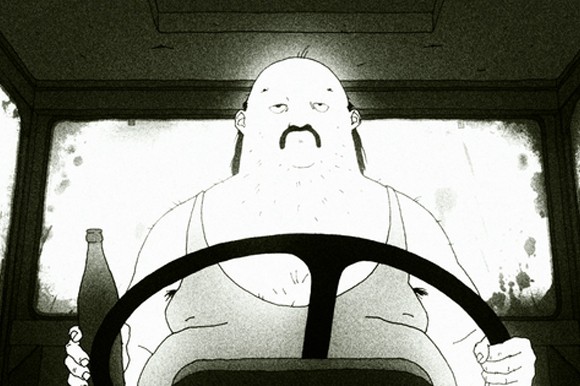
Czech film production in 2016 resulted in 45 feature films, three long animated films and 30 documentaries longer than 50 minutes.
Feature films’ production includes 16 debut features and 24 coproductions. In addition to majority coproductions with Slovakia as the traditional partner, Czech producers more frequently become minority coproducers of foreign films, thanks to the increased support for minority coproductions granted by the State Cinematography Fund.
The most represented genres among Czech films shot in 2016 are period films, comedies and family films. Several titles produced in 2016 focus on stories and personalities from Czech history. The Teacher / Učitelka (Pub-Res), a Slovak/Czech coproduction directed by Jan Hřebejk and written by his long time film partner Petr Jarchovský, returns to the inglorious normalisation practices in Czechoslovak schools.
I, Olga Hepnarova / Já Olga Hepnarová, directed by Petr Kazda and Tomáš Weinreb and made as a multilateral coproduction between Czech Republic, Poland, Slovakia and France, builds the psychological portrait of the mass murderer Olga Hepnarová, executed in 1975, by reconstructing the events leading to her disastrous actions.
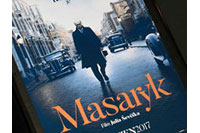 A Prominent Patient / Masaryk, directed by Július Ševčík and produced by Infilm, follows the Czechoslovak diplomat Jan Masaryk in the difficult times before WWII.
A Prominent Patient / Masaryk, directed by Július Ševčík and produced by Infilm, follows the Czechoslovak diplomat Jan Masaryk in the difficult times before WWII.
The Devil´s Mistress / Lída Baarová, directed by Filip Renč and produced by NoGup Agency, focuses on the dramatic fate of the famous Czech actress Lída Baarová, who became the mistress of the Nazi Minister of Propaganda Joseph Goebbels.
Another important film set during WWII is Anthropoid, which tells the true story of the mission to assassinate SS General Reinhard Heydrich, Reichsprotektor of the Protectorate of Bohemia and Moravia. This UK/Czech/French coproduction was directed by British director Sean Ellis and coproduced by Lucky Man Films.
Other important international coproductions shot in 2016 are Tordenskjold & Kold directed by Henrik Ruben Genz, a Danish/Norwegian/Czech/Swedish film coproduced by Czech company Sirena Film, Autumn Memories directed by Ali Fakhr Mousavi, a Czech/ Ukrainian/Iranian coproduction produced by Wilhelm Creative Center, and Codename Holec / Krycí jméno Holec directed by Franz Novotny, an Austrian/Czech coproduction produced by Novotny & Novotny, Filmproduktion and Dawson Films.
The list of the most important international productions shot in the Czech Republic in 2016 includes three international television series: Britannia (a collaboration between Sky and Amazon Studios), History Channel’s project Knightfall and National Geographic’s series Genius. In 330 shooting days these three projects spent in the Czech Republic almost 100 m EUR / 2.7 bn CZK.
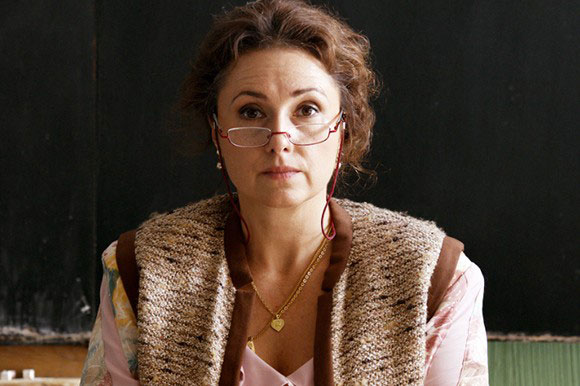 In recent years, several German TV productions were shot in the Czech Republic. In 2016 they were: The Glassblower / Die Glasblaserin directed by Christiane Balthasar and The Retribution / Die Vergeltung directed by Esther Gronenborn, both produced for ZDF, and also two films about Martin Luther - Himmel und Hölle, directed by Uwe Janson and produced by UFA Fiction, and Luther, directed by Eric Till and produced by NFP Teleart and Eikon Film.
In recent years, several German TV productions were shot in the Czech Republic. In 2016 they were: The Glassblower / Die Glasblaserin directed by Christiane Balthasar and The Retribution / Die Vergeltung directed by Esther Gronenborn, both produced for ZDF, and also two films about Martin Luther - Himmel und Hölle, directed by Uwe Janson and produced by UFA Fiction, and Luther, directed by Eric Till and produced by NFP Teleart and Eikon Film.
The successful cooperation with filmmakers from Scandinavia continued in 2016 with Borg, directed by Janus Metz Pedersen and produced bySF Film Production together with Tre Vänner Produktion AB, and Norwegian fantasy film The Ash Lad, directed by Mikkel Brænne Sandemose and produced by Maipo Film and Subotica Limited. The Czech producer for both projects is Sirena Film.
Hong Kong’s film The Adventurers, directed by Stephen Fung and starring Jean Reno, was also shot in the Czech Republic in 2016, with Mannix Pictures, Gravity Pictures and Czech company Milk & Honey Pictures producing, as well as The Ring (Red Chillies Entertainment), a Bollywood romance directed by Imtiaz Ali and starring Shah Rukh Khan and Anushka Sharmaand, which was shot mainly in Prague with the Czech company Punk Film servicing.
Czech Republic’s landscape draws projects from around the world, and the nearly one century-old Barrandov Studio in Prague, which hosts one of the largest costume and prop rental houses in Europe, attracts big and small productions with its experience and expertise.
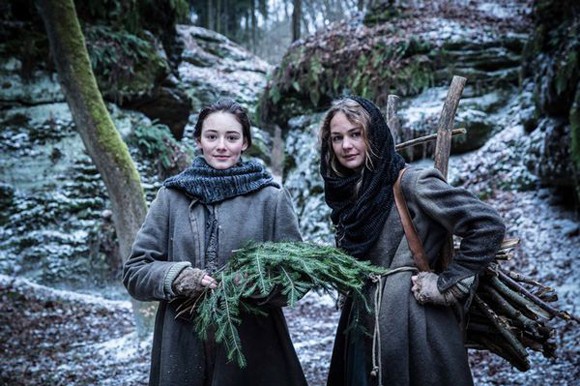 DISTRIBUTION
DISTRIBUTION
There are 45 distribution companies on Czech Republic’s market, nine of them with a market share of over 1%.
Cinemart, the leading distributor of US films from 20thTwentieth Century Fox, Universal and Paramount Pictures, has the biggest attendance market share – 35.7 %, and the highest number of releases - more than 57 last year.
Cinemart is followed by Falcon with 31.6% attendance market share, the distributor and coproducer of high-profile Czech films considerably contributing to the high attendance of domestic films in the Czech Republic.
Number three is Freeman Entertainment with 12.9 % attendance market share, followed by Bontonfilm with 6.3% (Bontonfilm mostly handles domestic and art house titles) and Bioscoop/AQS with 3.2 %.
Some Czech distributors use day-and-date releases and VOD platforms for European art house titles on a regular basis. The most active distributors in this area are Film Distribution Artcam and Aerofilms.
Thirty Czech cinemas are members of the Europa Cinemas network and are entitled to use the MEDIA programme’s support for distribution of European films.
Several Czech films were sold to distribution companies in other territories. Anthropoid was sold to Slovakia, United States, Canada, United Kingdom, Ireland, Spain, Argentina, Estonia, Turkey.
I, Olga Hepnarova was sold to the US, UK, Brazil, Taiwan, Russia and CIS, Poland, France, Slovakia, while Devil´s Mistress was acquired worldwide by Netflix
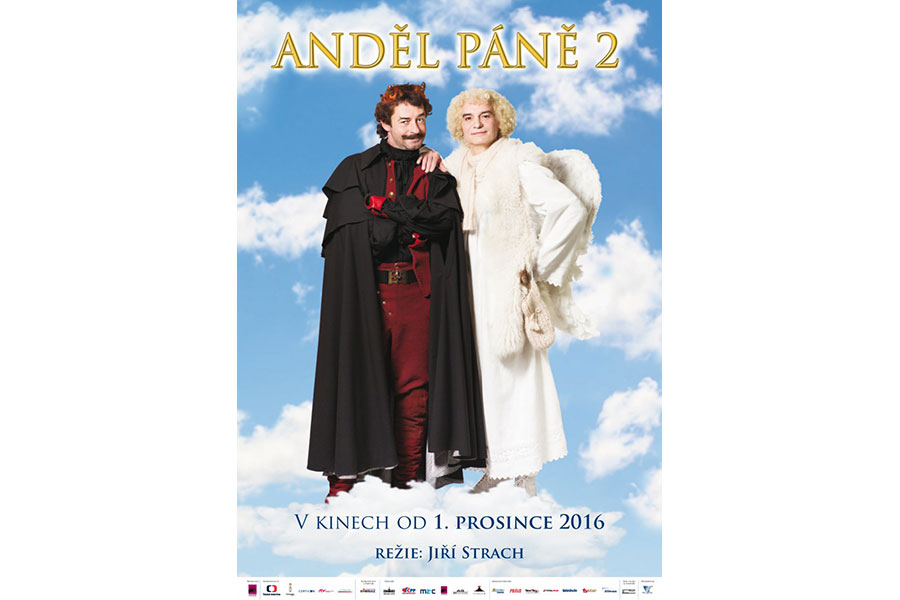 EXHIBITION AND BOX OFFICE
EXHIBITION AND BOX OFFICE
In 2016 distribution reached a remarkable increase in both cinema admissions and box office, with 15.6 m admissions (compared to 12.96 m in 2015), and over 74 m EUR / 2 bl CZK gross (compared to 61.8 m EUR / 1.67 bl CZK gross in 2015).
The average ticket price remained the same as in 2015 at 4.76 EUR / 128.73 CZK.
In 2016 domestic films’ share reached almost 30%, with the fairy tale Angel of the Lord 2, directed by Jiří Strach and produced by Marlene Film Production, topping the charts. The film distributed by Falcon reached 913,767 admissions and 4.08 m EUR / 110.4 m CZK gross.
Total admissions top ten is topped by The Secret Life of Pets (with 511, 000 admissions, 2.5 m EUR / 67, 5 m CZK gross) , Fantastic Beasts and Where to Find Them (457,891 admissions, 2.45 m EUR / 66.25 m CZK gross) and Bridget Jones´ Baby ( 395, 000 admissions, 2.07 m EUR / 56 m CZK gross).
Among the most successful Czech distribution titles were also Devil’s Mistress / Lída Baarová with 414,732 admission and 1.96 m EUR / 53.14m CZK gross, and Radek Bajgar‘s Tiger Theory, with almost 386,000 admissions and 1.65 m EUR / 44.56 m CZK gross.
There were 345 new releases in Czech cinemas in 2016, of which 79 were Czech titles, including newly restored old Czech films.
A total of 27 multiplexes with 229 screens and 40,882 seats were operating in the Czech Republic in 2016. Multiplex theatres’ market share in the box office was 72.08 % in 2016 (65.42 of total attendance). The largest multiplex theatre operator is Cinema City, followed by Cine Star.
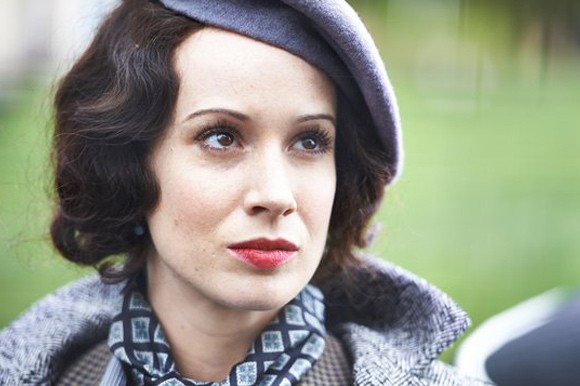 GRANTS AND NEW LEGISLATION
GRANTS AND NEW LEGISLATION
Czech Republic’s State Cinematography Fund remains the main tool for public support for cinematography. The funding is granted in the areas of development, production, distribution, promotion, technological development, publications, education and training, festivals and events, protection, preservation and access to film heritage. The Fund also supports activities of film offices in the Czech Republic, helping Czech and foreign filmmakers to film in various regions of the country.
In 2016, the State Cinematography Fund issued a total of 35 calls for domestic grants (compared with 29 calls in 2015), with the total allocation of 12.95 m EUR / 350 m CZK (compared to 8.14 m EUR / 220 m CZK in 2015); 10.06 m EUR / 272 m CZK was earmarked for Czech film development and production of all film genres. The Fund announces calls for subsidies for minority coproductions twice a year with an allocation of 1.48 m EUR / 40 m CZK (compared with 1.03 m EUR / 28 m in 2015).
The project Il Boemo by Petr Vaclav, produced by Mimesis Film, was granted the highest support ever – 850,000 EUR / 23 m CZK.
Among other important feature films supported in 2016 were: Garden Store/Family Friend / Zahradnictví/Rodinný přítel by Jan Hřebejk (Fog´n´Desire films, 222 000 EUR), Barefood on Stalks / Po strništi bos by Jan Svěrák, produced by Biograf Jan Svěrák (259,000 EUR), Švejk (629,000 EUR), directed by Bohdan Sláma and produced by Infinity Prague, and The Painted Bird / Nabarvené ptáče by Václav Marhoul (550,000 EUR), produced by Silver Screen.
Since the introduction of the new law in 2013, the State Cinematography Fund has also administered the Czech incentives scheme. The incentives are granted in the form of a 20% cash rebate on Czech production costs and 66% on the withholding tax on nonresident labor costs paid in the Czech Republic. The incentives are available for feature films, TV series, animated and documentary films. Maximum eligible costs are set at 80% of the total budget.
The pre-condition of eligibility for the incentive is the minimum volume of Czech cost:
555,000 EUR / 15 m CZK for feature, animated or TV film (minimum runtime 70 min.)
74,000 EUR / 2 m CZK for theatrical documentary (minimum runtime 70 min.)
295,000 EUR / 8 m CZK for TV episode (minimum runtime 30 min.)
147,500 EUR / 4 m CZK for animated episode (minimum runtime 4 min.)
Since the rebate was introduced in 2010, the Czech government has paid out more than 93 m EUR / 2.53 bn CZK in rebates to a total of 186 film and TV projects. Currently, rebates of 35m EUR / 956 m CZK are allocated to 54 projects.
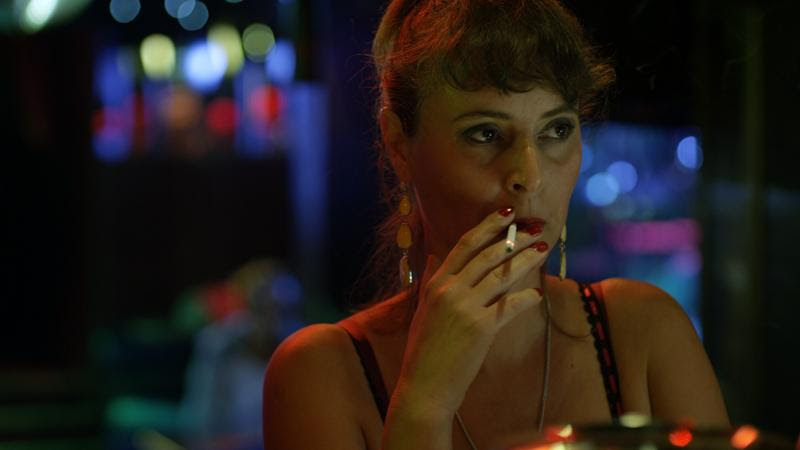 The amendment to the audiovisual law, approved in May 2016, came into effect 1 January 2017. An improved incentives scheme was introduced, which makes the system more flexible for film productions. The rebate will no longer be subject to a yearly cap. Producers will be able to register at any time during the year and immediately receive a registration certificate.
The amendment to the audiovisual law, approved in May 2016, came into effect 1 January 2017. An improved incentives scheme was introduced, which makes the system more flexible for film productions. The rebate will no longer be subject to a yearly cap. Producers will be able to register at any time during the year and immediately receive a registration certificate.
Upon receiving the registration certificate, the applicant can apply for the rebate. Rebates will be allocated throughout the year, depending on the beginning of production, and producers will be able to receive their grants in two parts, first upon the completion of shooting in the Czech Republic and the second part after the completion of all Czech production.
Large amounts of incentives were allotted in 2015/2016 to: Knightfall, directed by Don Handfield and Richard Rayner, andproduced by A+E Studios (6. 96 m EUR / 188.2 m CZK), Britannia, directed by Kari Skogland and produced by Amazon Studios (6.2 m EUR / 167.3 m CZK), Underworld V, directed by Anna Foerster and produced by Lakeshore International (4.67 m EUR / 126.3 m CZK), Zookeeper´s Wife, directed by Niki Caro and produced by Scion Films, UK (1.96 m EUR / 53.1 m CZK), The Last Visa, directed by Quing Hua and produced by Omnijoi Group (China) (1.1 m EUR / 30.2 m CZK), Jan Žižka, directed by Petr Jákl and produced by JBJ Film (1.32 m EUR / 35.8 m CZK).
The National Film Archive handles both domestic and international sales of films made in Czechoslovakia before 1991 and produced by Barrandov and Zlín film studios (both state owned at the time).
Czech Film Center is in charge of the promotion of Czech films abroad and it is the official national representative of Czech cinema and film industry at key film festivals and markets. Czech Film Commission is the official film office supporting and promoting audiovisual production in the Czech Republic. Both institutions were part of The National Film Archive until the end of 2016 but are now joining the State Cinematography Fund.
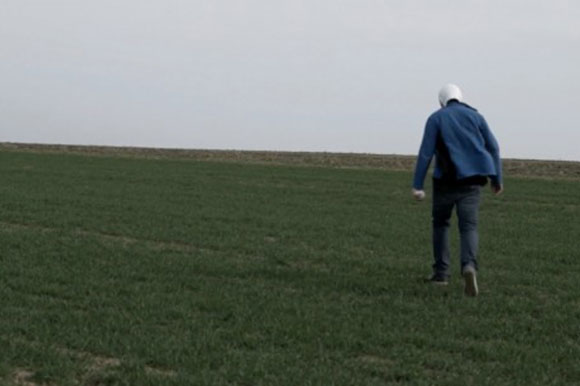 TV
TV
There are four major TV groups in the Czech Republic: the public TV Czech Television, CET 21 (NOVA group), Prima group and Barrandov TV.
Companies are introducing new channels in order to compensate for the declining audience of flagship stations. Czech Television currently runs six channels: CT1, CT2, CT24, CT sport, CT:D and CT Art.
NOVA group channels include NOVA, NOVA Cinema, Fanda TV, Smichov TV, Telka TV, NOVA Sport and NOVA Sport 2.
Prima group consists of Prima Family, Prima COOL, Prima LOVE, Prima ZOOM, new channel Prima MAX, and is also planning to launch Prima Comedy Central.
TV stations also increased the number of programmes available on the internet, bringing them to a larger audience. TV NOVA has its video library Voyo.cz, Prima group runs PrimaPlay.cz , while the Czech TV offers its programmes via iVysílání.cz.
The market for TV advertising is dominated by Nova and Prima (90%), while advertising on the Czech Television is limited by the law to a minimum. Television is traditionally the strongest advertising medium in the country.
Television stations play a large role in the production of quality content for local film and TV. Czech TV has become a permanent partner of Czech filmmaking, with its in-house production sector Film Center coproducing many feature films, including already mentioned high profile films We Are Never Alone, Angel of the Lord, Codename Holec or A Prominent Patient.
Czech TV is also the coproducer of almost all documentaries released in cinemas. Among the most interesting titles in 2016 are Helena Třeštíková’s Doomed Beauty / Zkáza krásou (Produkce Třeštíková) and Miroslav Janek´s The Normal Autistic Film (Mimesis Film).
HBO Europe also coproduces Czech documentaries and its own drama series in cooperation with local production companies and filmmakers. In 2016 HBO coproduced The Noonday Witch / Polednice, the only horror film of the year, directed by Matěj Chlupáček (Barletta Production). The most important project of HBO Europe in 2016 was the series Wasteland / Pustina, written by Štěpán Hulík and co-directed by Ivan Zachariáš and Alice Nellis, which depicts the disintegration of a family and a village set in the geographic and social outskirts of the country.
CONTACTS:
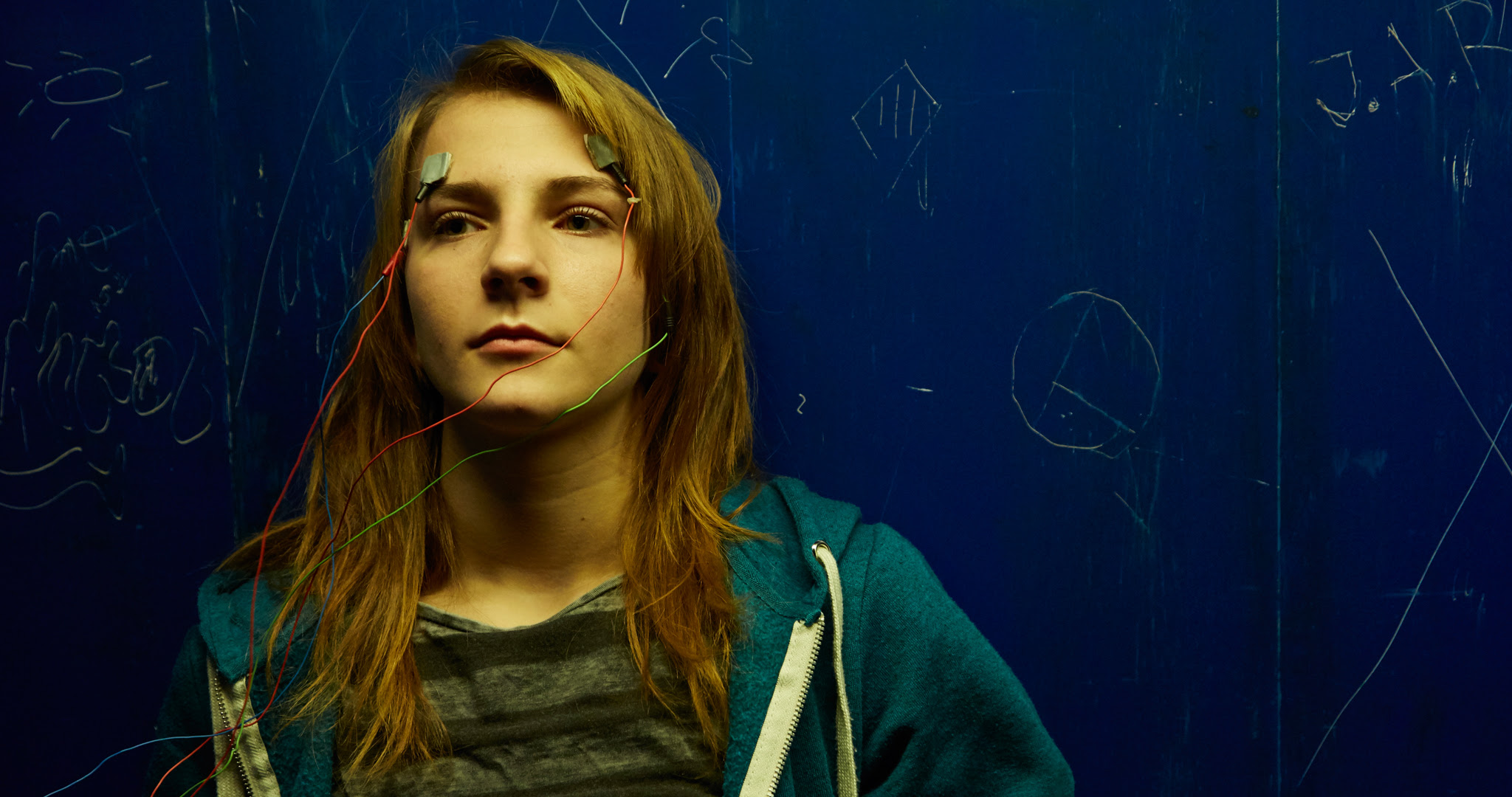 STATE CINEMATOGRAPHY FUND
STATE CINEMATOGRAPHY FUND
Veletržní palác, Dukelských hrdinů 47, 170 00 Prague 7
Phone: +420 224 301 278
This email address is being protected from spambots. You need JavaScript enabled to view it.
www.fondkinematografie.cz
NATIONAL FILM ARCHIVE
Malešická 12, 130 00 Prague 3
Phone: +420 778 522 729
This email address is being protected from spambots. You need JavaScript enabled to view it.
www.nfa.cz
APA- AUDIOVISUAL PRODUCERS’ ASSOCIATION
Národní 28, 110 00 Prague 1
Phone: +420 603 844 811
This email address is being protected from spambots. You need JavaScript enabled to view it.
www.asociaceproducentu.cz
CREATIVE EUROPE – MEDIA CZECH REPUBLIC
Národní 28, 110 00 Prague 1
Phone: +420 221 105 209
Fax: +420 221 105 303
This email address is being protected from spambots. You need JavaScript enabled to view it.
www.mediadeskcz.eu
CZECH FILM AND TELEVISION ACADEMY
Karlovo nám 285/19, 120 00 Prague 2
This email address is being protected from spambots. You need JavaScript enabled to view it.
www.cfta.cz
CZECH FILM CENTER
Národní 28, 110 00 Prague 1
Phone: +420 221 105 303
This email address is being protected from spambots. You need JavaScript enabled to view it.
www.filmcenter.cz
CZECH FILM COMMISSION
Národní 28, 110 00 Prague 1
Phone: 420 778 543 290
This email address is being protected from spambots. You need JavaScript enabled to view it.
www.filmcommission.cz
INSTITUTE OF DOCUMENTARY FILM
Štěpánská 611/14, 110 00 Praha 1
Phone: +420 224 214 858
Fax: +420 224 214 858
This email address is being protected from spambots. You need JavaScript enabled to view it.
www.dokweb.net
FITES – CZECH FILM AND TELEVISION UNION
Pod Nuselskými schody 3, 120 00 Prague 2
This email address is being protected from spambots. You need JavaScript enabled to view it.
www.fites.cz
FILM DISTRIBUTORS’ UNION
nám. Winstona Churchilla 2, 130 00 Prague 3
This email address is being protected from spambots. You need JavaScript enabled to view it. , www.ufd.cz
Report by Denisa Strbova (2017)
Sources: State Cinematography Fund, Czech Film Center, Czech Film Commission, Film Distributor´s Union

